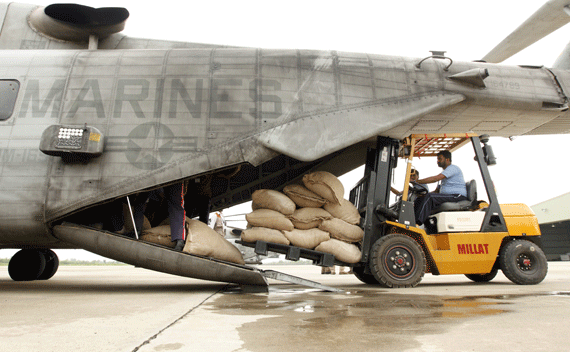Guest Post: More Pessimism on Pakistan
More on:

My colleague, Steve Biddle, who is as smart as they come and who has spent much of the past several years thinking about U.S. policy in Afghanistan, saw Dan Markey’s comments on Lawrence Wright’s recent article in the New Yorker and wanted to weigh in. No, Steve doesn’t provide any reason to be optimistic that Washington has much of a chance to influence events in Pakistan for the better, even with a bit of "tough love." Sometimes being a superpower is not all it is cracked up to be.
I agree with Dan. We differ a bit on the prospects for bilateral U.S. policy improving the prognosis in Pakistan--whereas Dan is somewhat pessimistic on that score I’m very pessimistic. I doubt that reconfiguring our aid, for example, offers much traction, and I doubt that a trade deal on textiles would be transformative either (even if this were politically realistic here, which it isn’t).
To make things much better in Pakistan will require the Pakistanis themselves to change their own threat assessment and interest calculus. They may yet do this in response to an increasingly lethal internal insurgency aimed at them. Or they may not: their internal divisions don’t bode well for nimble strategic adjustment. But I doubt the United States can engineer such a shift. We can derail it via error or bad policy. But I don’t think we can accelerate it much via cleverness on our end. It’s easier for us to make things worse than better.
This is partly why I’ve supported the Afghan war--if we can’t make a bad situation in Pakistan much better we should at least avoid making it any worse than it needs to be. And I fear that a Karzai collapse would confront Pakistan with a pace of security decay that would overwhelm their (limited) ability to adapt.
But either way, Wright’s article implies that if U.S. aid created the problem then U.S. aid should be withdrawn. This strikes me as too simple on both ends. I accept much of his critique of our aid policies, but there was more to the problem than just that, and the effects of starting aid and stopping it aren’t symmetrical. (It’s also interesting that Wright’s own account shows at least as much evidence that trouble came from withdrawing aid than the opposite--the distrust he sees as central was created, in his account, by our aid cutoffs in response to their nuclear program.)
I’m open minded at this point on U.S. policy in the region depending on the emerging post-Osama bin Laden trajectory of al-Qaeda and Lashkar-e-Taiba et al. If the militant threat in Pakistan shifts away from al-Qaeda’s trademark emphasis on the distant enemy and refocuses on more normal, local, concerns then I’m prepared to re-evaluate our role, especially in Afghanistan. For now, though, my primary reaction to Wright is that he has part of it right but overemphasizes one variable (U.S. aid) and implies thereby a remedy that might end up making things worse rather than better.
Does Steve have it right, or do you have a suggestion for how U.S. policy could influence Pakistan in a positive direction?
More on:
 Online Store
Online Store